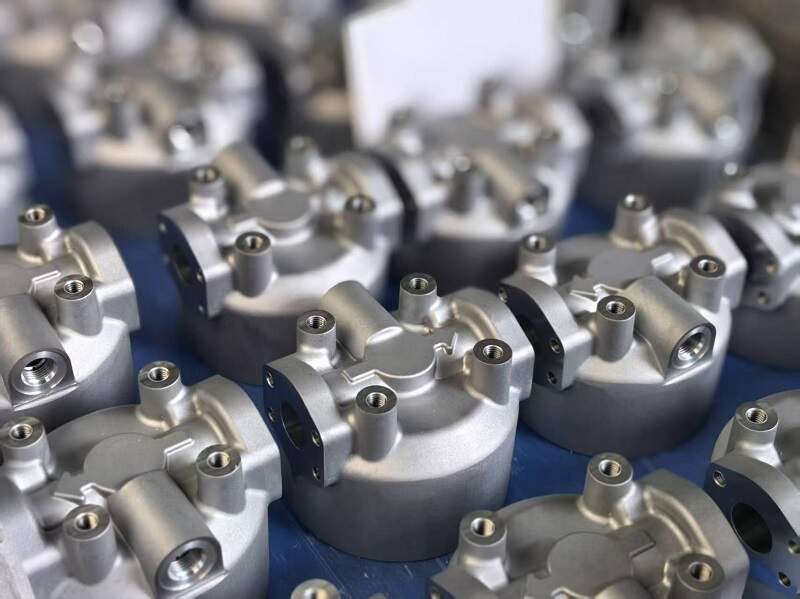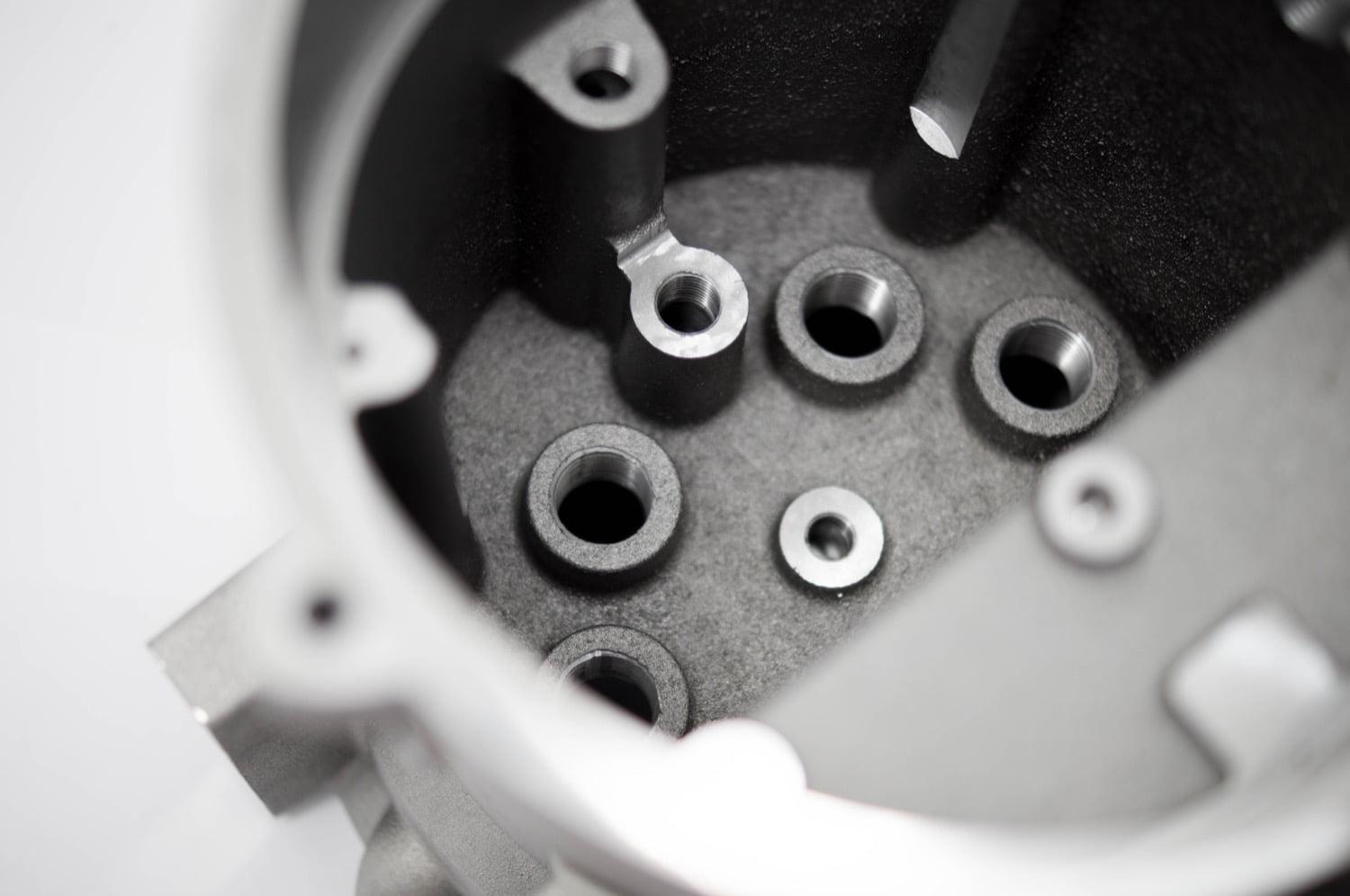Aluminum Foundry expertise that delivers superior product quality
Wiki Article
Exactly How Light Weight Aluminum Foundries Contribute to Numerous Industries: An Extensive Introduction
Light weight aluminum shops serve as vital suppliers throughout multiple sectors, consisting of automotive, aerospace, construction, and electronic devices. They generate parts that are not just lightweight but likewise sturdy, improving the performance of numerous items. With innovative spreading strategies and a commitment to sustainability, these shops are adapting to satisfy evolving sector demands. As they innovate, the influence of light weight aluminum castings on different applications raises crucial concerns about the future of manufacturing. What exists ahead for this vital sector?The Function of Light Weight Aluminum Foundries in the Automotive Market
As the vehicle industry significantly accepts light-weight materials to boost fuel effectiveness and efficiency, aluminum foundries play an essential role in this advancement. These centers focus on the production of aluminum spreadings, which are vital parts in contemporary lorries. By supplying high-strength, lightweight parts, aluminum shops enable producers to lower the overall weight of lorries, eventually leading to improved gas economic climate and lowered emissions.Light weight aluminum's resistance to corrosion additionally enhances vehicle long life, making it an eye-catching selection for car manufacturers. Shops use sophisticated methods such as die spreading and sand spreading to produce exact and elaborate parts, ensuring that they satisfy stringent market standards. In addition, the ability to recycle light weight aluminum efficiently adds to an extra sustainable manufacturing procedure. As the automobile field remains to introduce, aluminum shops will remain pivotal in providing the products essential for the next generation of cars, supporting both efficiency and environmental objectives.

Aerospace Applications of Aluminum Castings
Aluminum castings are important to the aerospace market, offering a combination of light-weight toughness and toughness that is important for aircraft performance. These spreadings are utilized in various components, such as engine components, architectural frames, and landing equipment, where weight reduction is important for fuel efficiency and overall safety and security. The versatility of light weight aluminum enables complex geometries that improve wind resistant performance while preserving architectural honesty.Moreover, improvements in casting modern technologies have boosted the precision and surface area finish of aluminum elements, lowering the demand for extensive post-processing. This efficiency not only accelerates production timelines yet also decreases prices, making aluminum an appealing selection for manufacturers. The rust resistance of light weight aluminum warranties durability and integrity in rough operating atmospheres, further developing its role in aerospace applications. As the industry advances, aluminum spreadings remain to be an important product, driving innovation and supporting the advancement of next-generation aircraft.
Construction Market Innovations Via Light Weight Aluminum
The building and construction industry has progressively taken on aluminum due to its lightweight residential or commercial properties and versatility, paralleling its effective applications in aerospace. Innovations in aluminum style have actually resulted in more powerful, a lot more efficient frameworks, allowing building contractors and architects to explore new opportunities. The material's resistance to deterioration and reduced upkeep needs make it especially appealing for both domestic and commercial jobs.Light weight aluminum's convenience promotes the creation of complex designs, enabling aesthetic enhancements that were previously difficult with conventional materials. Prefabrication techniques have actually additionally developed, using aluminum to minimize building time and prices considerably. Additionally, the energy performance of light weight aluminum systems-- such as window frameworks and roofing-- adds to lasting structure techniques, straightening with modern ecological requirements. As the building sector remains to embrace these advancements, light weight aluminum's duty is expected to increase, driving further advancement and contributing to the development of durable infrastructures.
Electronic devices and the Demand for Lightweight Aluminum Parts
With the fast improvement of innovation, the demand for light-weight aluminum components in the electronic devices market has surged. As tools end up being a lot more small and portable, producers seek materials that offer both longevity and weight reduction. Light weight aluminum, with its outstanding strength-to-weight ratio, has arised as a preferred choice for elements such as housings, warmth sinks, and architectural supports.Using light weight aluminum not only enhances item performance yet additionally contributes to energy performance, as lighter tools require much less power during procedure. In addition, light weight aluminum's exceptional conductivity makes it optimal for electronic applications, guaranteeing reliable warmth dissipation and reducing the threat of overheating.
As consumer preferences shift towards sleek and lightweight gizmos, aluminum foundries play an essential role in satisfying the progressing needs of the electronics market (Aluminum Foundry). Their capability to generate specific and premium light weight aluminum components supports innovation, enabling producers to push the borders of style and functionality
Sustainable Practices in Aluminum Foundries
As the electronic devices sector progressively focuses on sustainability, aluminum factories are adapting their methods to align with these environmental objectives. Several factories are applying recycling programs that redeem light weight aluminum scrap, considerably minimizing the requirement for resources and decreasing waste. By using energy-efficient modern technologies, these centers are reducing their carbon impact; as an example, utilizing electric furnaces instead of traditional gas-fired ones can bring about considerable power cost savings.In addition, aluminum foundries are purchasing water preservation procedures, such as closed-loop systems that reuse water used in cooling processes. These techniques not only lower water consumption yet likewise reduce the environmental impact related to wastewater discharge. Numerous factories are discovering sustainable energy sources, such as solar and wind power, to fulfill their power requires sustainably. With these campaigns, aluminum foundries exemplify a commitment to environmental stewardship while remaining to meet the needs of the electronics industry.
Future Fads in Aluminum Factory Technologies
Arising technologies are positioned to transform aluminum shops, boosting performance and product top quality while progressing sustainability efforts. Developments such as artificial intelligence and artificial intelligence are expected to optimize production processes by anticipating equipment failings and boosting resource appropriation. The integration of innovative robotics will certainly improve procedures, minimizing labor costs and minimizing human error.Additive production, or 3D printing, is also getting grip, enabling the production of complicated geometries that were formerly unattainable with traditional techniques. This shift might bring about substantial product cost savings and lowered waste. Furthermore, smart foundries utilizing IoT (Internet of Things) innovations will certainly allow real-time monitoring and information analysis, cultivating positive decision-making.
The adoption of cleaner melting modern technologies and reusing techniques will certainly better lower the ecological impact of light weight aluminum shops, making them much more lasting. Collectively, these patterns indicate a future where light weight aluminum factories can run with better efficiency and duty.
Often Asked Concerns
What Are the Environmental Impacts of Aluminum Foundries?

Just How Do Foundries Make Sure Top Quality Control in Aluminum Spreading?
Factories ensure high quality control in aluminum spreading by executing extensive inspection processes, utilizing innovative technology, performing regular material screening, and adhering to sector criteria, consequently keeping consistency and dependability in their ended up products. more info Precision aluminum casting.What Is the Typical Life-span of Light Weight Aluminum Cast Parts?
The typical life-span of light weight aluminum cast components normally ranges from 10 to half a century, depending on aspects such as environmental conditions, use, and maintenance. Appropriate treatment can greatly boost their resilience and performance gradually.Just How Are Light Weight Aluminum Alloys Selected for Particular Applications?
Aluminum alloys are chosen based on elements such as stamina, corrosion resistance, weight, and thermal conductivity. Engineers evaluate the particular demands of applications to establish one of the most suitable alloy for finest performance and toughness.What Are the Security Regulations for Light Weight Aluminum Factory Workers?
Safety and security regulations for aluminum factory employees consist of personal safety equipment mandates, air flow demands, exposure limits to harmful products, and procedures for handling molten metal. Compliance guarantees worker safety and decreases health and wellness risks related to foundry operations.As the automotive sector significantly welcomes lightweight materials to improve fuel performance and efficiency, aluminum shops play a critical duty in this advancement. As consumer preferences shift towards streamlined and lightweight gizmos, light weight aluminum shops play a necessary function in fulfilling the developing demands of the electronic devices sector. As the electronics industry significantly prioritizes sustainability, aluminum factories are adapting their methods to align with these ecological goals. Many shops are carrying out recycling programs that recover aluminum scrap, substantially minimizing the need for raw products and minimizing waste. Security guidelines for aluminum factory workers consist of personal protective devices requireds, air flow needs, exposure limitations to dangerous products, and procedures for handling molten steel.
Report this wiki page